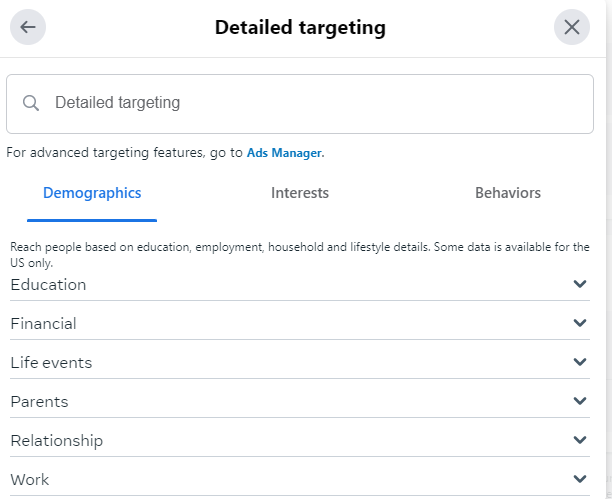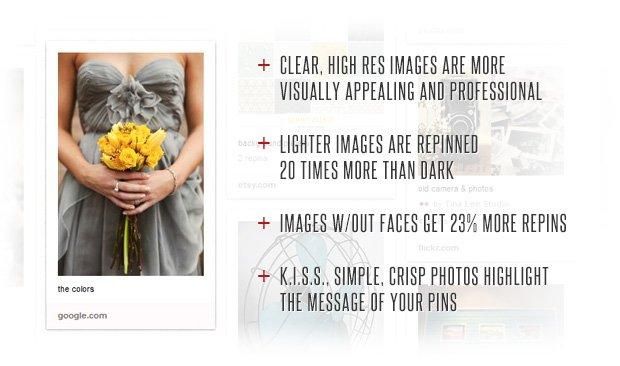Imagine if you had the power to influence people’s subconscious minds. It would be great, wouldn’t it?
As a marketer, you could reach out to consumers and persuade them to click through and buy your product, or they’d see an advert offline and instantly want to rush and buy what you’re selling.
What if I told you there’s no need to wish for it? You already have this ability.
It’s called marketing psychology, and it’s a proven technique for spurring shoppers to action, or at least encouraging them to find out more.
Power words are a part of marketing psychology that you often see in adverts. In fact, they’re a go-to for many marketers. Think of words like ‘smart,’ ‘fresh,’ ’innovative,’ ‘bold,’ and ‘pioneering.’
However, there’s more to power words than that: they’re also effective in creating brand loyalty, and who doesn’t want loyal customers?
In this article, l look at three power words that may significantly impact conversation rate optimization.
Before I get into that, though, let’s have a quick look at what marketing psychology is.
What is Marketing Psychology?
In its most simple terms, marketing psychology studies how people interact with products and services.
It encompasses a range of disciplines, including advertising, public relations, market research, and sales. It’s also called neuromarketing, and the goal of marketing psychology is to help marketers understand what makes consumers tick.
This gives marketers the ‘magical’ ability to know what is most likely to resonate with their prospects and secure the conversion.
If nothing else, when used correctly, marketing psychology is an incredible technique to engage consumers and intrigue them enough that they want to find out more.
Now, before you start thinking that you need to get all scientific and deep, there are some easy ways to capture your prospects’ attention with psychology.
What Are Power Words?
I’ve already mentioned power words, but maybe you’re not familiar with them, so I’ll explain.
Power words have a strong emotional impact and marketers use them to influence people’s buying behaviors.
There are several benefits to using power words for your marketing efforts. Here are some key ones:
- The way we speak to and about others has a profound impact on their emotions and behavior.
- In marketing, using persuasive language is critical to creating desired customer outcomes.
- There are certain words and phrases that can have a very positive or negative effect on people’s moods and attitudes.
- Knowing which words to use can be hugely beneficial in crafting dynamic, inspiring marketing messages.
- Knowing how to use power words effectively can help create persuasive messages influencing people’s decisions.
Now, let’s get into these three power words for your marketing, shall we?
1. “IMAGINE”
Why it’s a power word:
Imagine is one of the most impactful words in the English language.
When you imagine something, you immediately picture it in your mind, creating a level of engagement that’s hard to replicate with other words.
There’s a good reason why the word works so well.
‘Imagine’ evokes emotion and creates positive mental images. When people feel good about something, they’re more likely to take action, whether that means buying a product or service or simply sharing it with others.
You can also use the word to tap into people’s emotions and inspire them. For example, imagine being able to travel the world, or imagine how good it would feel to get in shape.
When we imagine something, we not only see it in our minds, but we feel the emotions associated with it. This can be a big motivator, especially regarding buying decisions.
We can all relate to this.
Maybe you’ve seen an advert for your dream car and imagined yourself behind the wheel. Or perhaps you’ve seen an advert for the lottery, and you’re already imagining that you’ve won. Most of us have done it. We’re already spending the money from our million-dollar win, often before we’ve even brought the ticket.
Finally, ‘Imagine’ is one of the top power words because our reactions to it are immediate: It captures attention quickly and easily.
Of course, you don’t have to use the word ‘image’ directly in your marketing.
An example:
From telling you the latest news to playing your favorite track on demand, Alexa’s already got many skills, but imagine if it could read your mind. That’s the premise behind a recent Superbowl advert.
In it, actress Scarlett Johansson and comedian Colin Jost imagined what life would be like if Alexa knew what they’re thinking and said it out loud.

The results weren’t all good, with Alexa inadvertently telling a variety of people things you wouldn’t necessarily want them to know.
Besides its comedic moments, the ad shows us that you don’t even need to use an actual power word for your marketing: just the suggestion of it is enough.
2. “YOU”
Why it’s a power word:
You is a placeholder for your name.
I know—it’s an obvious one. Perhaps the three most captivating words in sales are you, free, and guaranteed.
It might not be the most apparent power word that springs to mind, but think about it.
‘You’ represents your name. It personalizes your advertising, which is why marketers often use it in headlines and throughout copy.
‘You’ makes people feel important, heard, and seen. When used in advertising, it can tap into those feelings and create a connection with the customer. When customers feel they are being spoken to directly, they are more likely to respond positively.
In fact, ‘You’ is such a strong power word that most copywriters use it in their advertising.
Do you know why? Because, yes, you’ve guessed, the advertiser is talking directly to YOU, the consumer.
The reason words that refer to us are so powerful is a psychological effect called Fundamental Attribution Error, a type of cognitive bias. Basically, while we are naturally critical of other people, our critical minds take a break when we evaluate ourselves.
And guess what? There’s nothing as stimulating to us as our interests, desires, ambitions, goals, yearnings, and emotions. For our whole lives, that is all we have; as long as your copy addresses those things for your prospect, it is guaranteed to carry them along in a rapt, semi-torpid daze of introspection.
An example:

Look at how MailChimp uses the word you and your in its website’s copy.
Throughout its site, MailChimp spells out:
- Why you should use its product. For example, MailChimp breaks down how it helps you create better campaigns, its host of features, and integrated marketing capabilities as reasons why a consumer would want to subscribe to its product.
- The benefits of using its product for your business. For instance, MailChimp highlights its 300-plus app integrations, expert guidance and award-winning support as selling points.
Then, it promises to keep you:
- Informed, motivated, and ahead of the competition.
MailChimp then finishes by telling prospects, ‘they’ve got your back.’
See how it works? Wouldn’t it tempt you to sign up and start taking advantage of everything the product offers? Think about how you can do the same in your copy.
3. “BECAUSE”
Why it’s a power word:
There are many reasons why ‘because’ is a power word, but three, in particular, stand out. The first reason is that it’s a psychological trigger. When someone hears or sees the word ‘because,’ their brain immediately starts looking for a reason; once they find one, you’re more likely to persuade them with what you’re saying.
The second reason is that it’s concise. ‘Because’ is the perfect word to use to get your message across efficiently.
The third reason is its versatility. You can use ’because’ in both formal and informal settings, with adults and children. It’s a word that everyone understands and can use effectively.
There’s more to it, though. Here are a few more reasons why ‘because’ is a power word.
- Because is a logical connector.
The word because helps to make your argument or point more convincing by linking your reasoning clearly and concisely. When someone understands why you did something, they’re more likely to be on your side.
- Because is emotional.
Psychologically, we tend to react more strongly to things that are accompanied by a strong emotion. ‘Because’ stirs up feelings of certainty and confidence, which can be very persuasive when trying to get someone to do something.
- Because is contagious.
When we hear others use because effectively, it subconsciously influences our behavior and speech.
You’ve probably heard of “reason why” advertising—a phrase I believe comes from John E Kennedy, though I learned it from Drayton Bird. As human beings, we crave order. We want to know why something is the way it is, and what caused something to happen. And we crave it, particularly in our own lives.
These kinds of reasons, cause and effect relationships, are encapsulated in the word because. When our mind’s gatekeeper—the “critical factor”—hears that word, it treats it as a cue to let the speaker (or writer) through to the unconscious mind.
If you think back to your childhood or watch how kids negotiate with their parents, you’ll immediately see that this works precisely, as Langer showed. Perhaps this sort of situation sounds familiar:
“Mom, can I have some biscuits?”
“No, darling, not now.”
“But mom, I love biscuits.”
“I know, sweetie, but I said not now.”
“But mom, why?”
“Because I said so.”
Is that a real reason? No, it ain’t! It’s just a reiteration of what the kid already knows, right? But at this point, most children accept that it’s time to give up. And that’s something “programmed” into us, even as adults. It makes the word “because” very powerful.
An example:

Who hasn’t heard of L’oreal’s ‘because you’re worth it’ tagline? There can’t be many people out there in that category.
L’oreal’s slogan dates back over 50 years. Since its creation by junior copywriter Ilon Specht, the slogan took the world by storm, and you can see it in 40 languages.
As L’oreal states, the tagline resonates today and encourages self-worth and belief.
The takeaway? Think about how you can make your slogan timeless and meaningful when using power words.
Power Words FAQs
What are power word examples?
Some examples of power words include: amazing, astonishing, incredible, beautiful, brilliant, exciting. These words grab attention and make people want to learn more about what you have to say.
How can we increase conversions?
You can improve conversion rate optimization by creating targeted campaigns, publishing compelling, keyword-based content, making your website easy to navigate, and ensuring your website is mobile-friendly. You can also use power words.
What are strong power words?
Some examples include:
1. Awesome
2. Breathtaking
3. Compelling
4. Eye-opening
What affects the conversion rate?
The general layout of your site can have a significant impact on conversion rate optimization. The more cluttered and confusing it is, the more likely your prospect is to go elsewhere.
Your content also needs to be relevant to your audience, and the offer itself must be attractive for people to convert;
Power Words Conclusion
These are not the only power words. There are others. But these three are particularly powerful and valuable to us as marketers and salespeople.
Imagine. You. Because.
They are also conveniently easy to work into copy, videos, and even face-to-face sales presentations.
You’d want to start using power words in your copy for many reasons, but the most obvious one is conversion rate optimization.
With some practice, you can start using these words to create more effective marketing materials and improve your bottom line.
Do you use power words in your copy? Which ones get the best results?



![How to Create and Launch a Google Ads Campaign [2022 Update]](https://localseoresources.com/wp-content/uploads/2022/08/google-ads.png)

Recent Comments